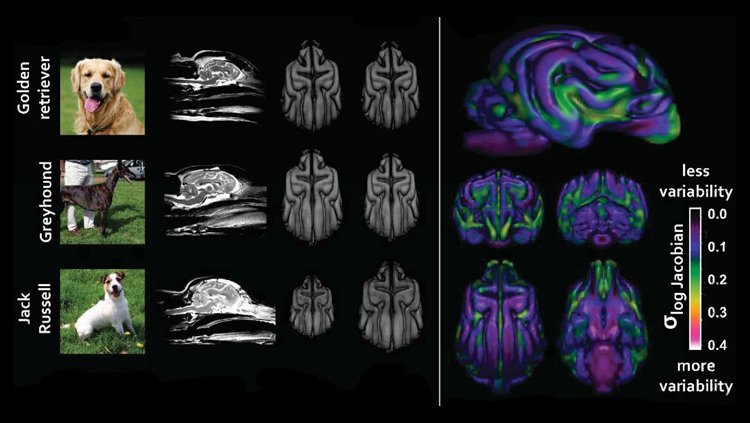Dog brain structure varies across breeds and is correlated with specific behaviors, according to new research published in JNeurosci. These findings show how, by selectively breeding for certain behaviors, humans have shaped the brains of their best friends.
Over several hundred years, humans have selectively bred dogs to express specific physical and behavioral characteristics. Erin Hecht and colleagues investigated the effects of this selective pressure on brain structure by analyzing magnetic resonance imaging scans of 33 dog breeds. The research team observed wide variation in brain structure that was not simply related to body size or head shape.

[rand_post]
The team then examined the areas of the brain with the most variation across breeds. This generated maps of six brain networks, with proposed functions varying from social bonding to movement, that were each associated with at least one behavioral characteristic. The variation in behaviors across breeds was correlated with anatomical variation in the six brain networks.
Studying the neuroanatomical variation in dogs offers a unique opportunity to study the evolutionary relationship between brain structure and behavior.